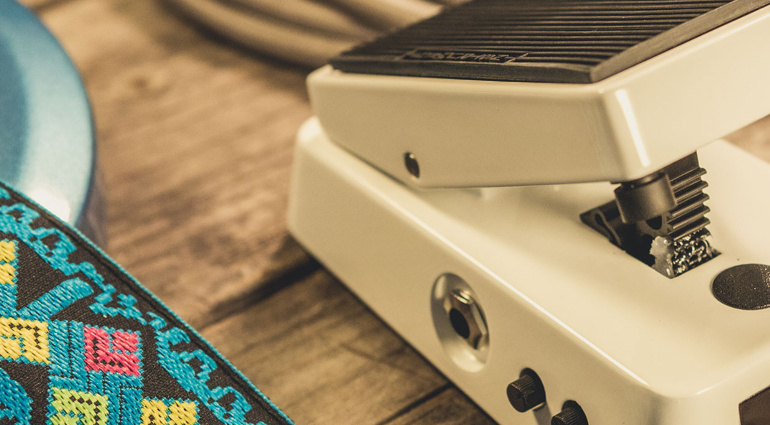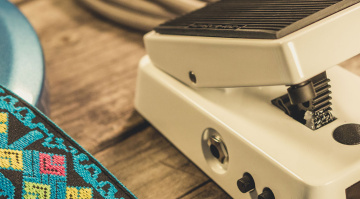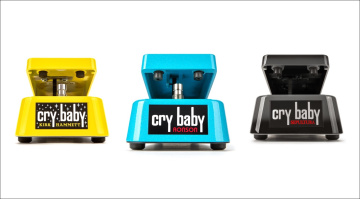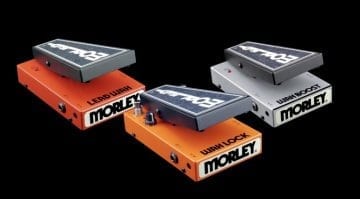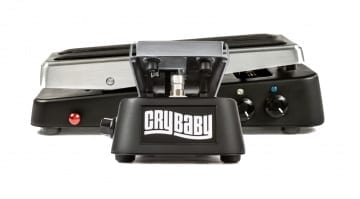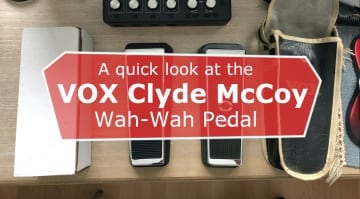The Best Wah Wah Pedals for Iconic Guitar Tones: Cry Baby and Beyond
Play the Sounds of Hendrix, RATM and Hammett!
There is an easy answer to the best wah wah pedals. But there is also so much more than the Cry Baby. Some like a different action, some like a different sound, and for some it’s a budget question. We’ve got suggestions for each.
The Best Wah Wah Pedals
How did we get to Wah Wah?
In 1965, studio engineer Brad Plunkett was reworking a Vox AC-100 amp to make it cheaper to produce. While replacing the amp’s MRB (midrange boost) switch with a potentiometer, he discovered that sweeping the frequency created a dramatic “wah” tone. The problem? You couldn’t twist a knob while shredding. His solution was genius: adapt an organ’s volume pedal to control the circuit with your foot — and the first wah pedal was born.
The earliest models were marketed under the Clyde McCoy name before morphing into the designs we know today, like the Cry Baby. It wasn’t long before guitarists realized how well these pedals could add drama, groove, and personality to their playing, especially in funk, rock, and psychedelic music. Some of the most legendary names in guitar history have made the wah a staple of popular music. For instance, Jimi Hendrix excessively used a wah in his solos on tracks like “Voodoo Child (Slight Return)”.
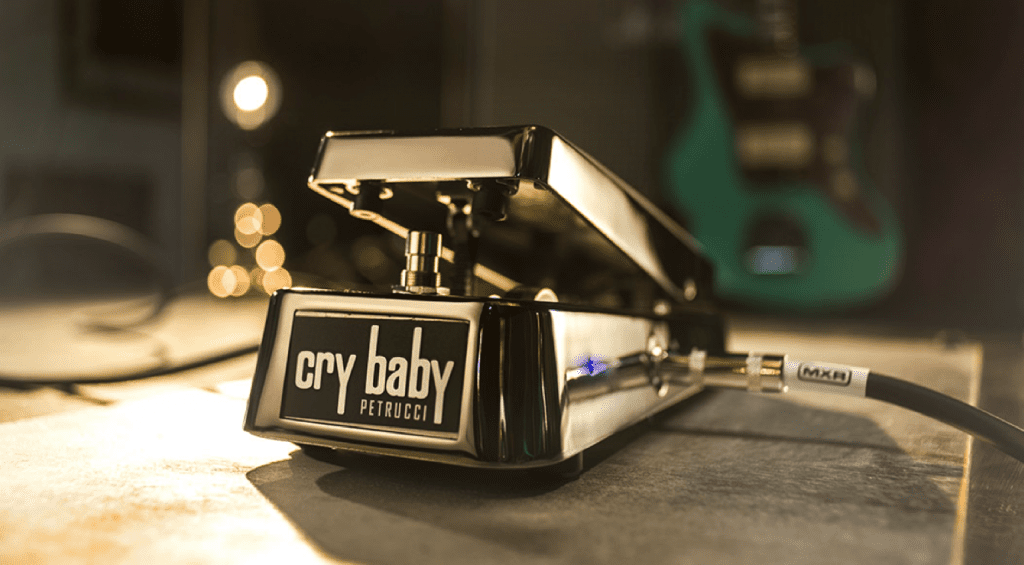
In the funk world, players like Charles “Skip” Pitts gave the effect its rhythmic swagger, especially in songs like “Theme from Shaft.” And of course, metal and hard rock giants like Kirk Hammett, Slash, and Tom Morello took the wah into new sonic territories.
The Best Wah Wah Pedals: What to Look For
These days, the best wah wah pedals go from vintage circuits to modern designs, with adjustable sweep ranges, true bypass switching, and even multi-mode options. Some are voiced for a throaty, vintage-style growl, while others emphasize a sharper, more modern quack.
Whether you’re chasing that Hendrix sound, laying down tight funk rhythms, or adding a bit of drama to a solo, the right wah can be as personal to a guitarist’s sound as the guitar itself. It’s also worth noting the difference between a traditional wah and an auto-wah (or envelope filter).
A wah relies on your foot to manually sweep the filter in real time, giving you precise control over the expression and timing. An auto-wah, on the other hand, responds automatically to your picking dynamics. The harder you hit, the more it “opens” the filter. This makes auto-wahs great for funky, percussive playing where you want consistent movement without working a pedal, but they lack the exact, expressive phrasing a manual wah delivers.
Harley Benton Custom Line WP-60 Wah
The Harley Benton Custom Line WP60 delivers a 60s-style wah tone with a touch of modern refinement. Housed in a rugged chassis, it’s built to handle stage abuse while offering true bypass for pure signal integrity.
Practical features like adjustable pedal resistance let you fine-tune the feel to your playing style, and standard 6.3 mm jack connections make setup easy. For $48 / £42 / €49, it’s one of the most affordable wah pedals at Thomann*.
Behringer HB01 Hell Babe
The Behringer HB01 Hell Babe sets itself apart with an optical control system, eliminating the need for mechanical pots or switches. That way, you get a wah pedal with wear-free operation and long-term reliability. Plus, the range control lets you set the heel-down frequency anywhere between 440 Hz and 250 Hz, so it works great for both guitar and bass.
For additional tonal shaping, the HB01 features a fine-tune control to extend the high-frequency range. A built-in, switchable boost helps your solos cut through the mix. At $53 / £47 / €55, this contender on our list for best wah wah pedals is almost as affordable as the Harley Benton wah. Get it at Thomann*.
Mooer Envelope Analog Auto-Wah
The Mooer Envelope is a compact auto-wah designed for both guitar and bass. Its controls for Sensitivity, Q, Decay, and Tone allow you to fine-tune its dynamic response and sweep. That way, you can dial in the effect so it reacts naturally to your playing style.
Despite its small footprint, the Mooer Envelope packs plenty of character, from subtle quack to funky, vocal-like sweeps. Whether you’re after vintage-style funk rhythms or expressive filter sweeps for bass lines, this pedal delivers responsive, touch-sensitive auto-wah performance without taking up much space. Check it out at Thomann*, where it’s selling for $58 / £52 / €59.
Electro Harmonix Micro Q-Tron and Q-Tron Plus
Another auto-wah, yet one, I’d argue, that sounds a bit more musical and dirty than Mooer’s affordable solution. Both the Micro Q-Tron and the Q-Tron Plus ooze sonic character. Your funk or reggae licks have never sounded this good!
While the smaller micro version only gives you options for filter mode, Q, and drive, the bigger plus edition also allows you to change its dynamic response, depending on your playing style. It also includes an optional boost and an FX loop. The EHX Micro Q-Tron goes for $96 / £87 / €99 at Thomann*, while the Q-Tron Plus costs $164 / £149 / €169*.
Dunlop Cry Baby GCB95 Wah Wah Pedal
The best wah wah pedals list has to end with the definitive wah pedal, the Cry Baby. There are a staggering 31 different Cry Baby models listed at Thomann. So, it’s pretty much impossible to pick the best wah wah pedals from any of these. Let’s start with the most affordable one. The Dunlop Cry Baby GCB95 comes quipped with the legendary red Fasel inductor and a 100 kOhm Hot Potz potentiometer. This wah delivers a fast, expressive response that makes the wah effect sing.
Built in the USA with a rugged metal chassis, it’s ready to handle years of stage abuse. And it includes a hardwire bypass. That way, the GCB95 keeps your tone clean when switched off. If you want a more versatile solution, check out the Cry Baby CB-535Q. It offers six selectable wah frequency ranges, so you can dial in everything from sharp, focused peaks to wide, vocal-like sweeps.
Many other Cry Baby versions are signature editions for guitar giants like Kirk Hammett*, Dimebag Darell*, Justin Chancellor*, or Slash*, capturing the sonic character of each player. Each one could easily have been on the best wah wah pedals. The Dunlop Cry Baby GCB95 is available for $99 / £89 / €102 at Thomann*, while the CB-535Q goes for $188 / £169 / €194*.
*Disclaimer: This post about the best wah wah pedals contains affiliate links and/or widgets. When you buy a product via our affiliate partner, we receive a small commission that helps support what we do. Don’t worry, you pay the same price. Thanks for your support!

 3,2 / 5,0 |
3,2 / 5,0 | 